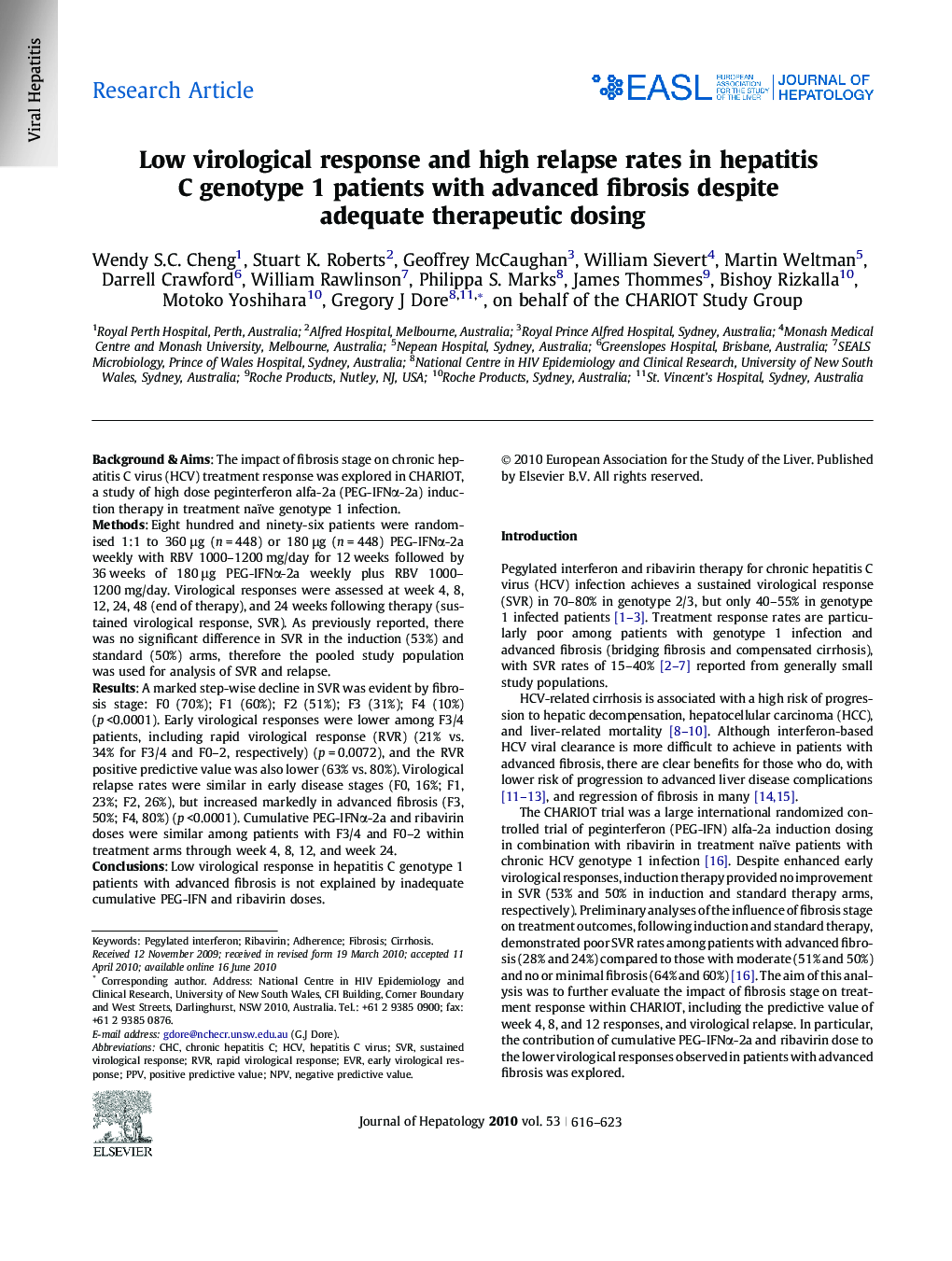| Article ID | Journal | Published Year | Pages | File Type |
|---|---|---|---|---|
| 6108908 | Journal of Hepatology | 2010 | 8 Pages |
Background & AimsThe impact of fibrosis stage on chronic hepatitis C virus (HCV) treatment response was explored in CHARIOT, a study of high dose peginterferon alfa-2a (PEG-IFNα-2a) induction therapy in treatment naïve genotype 1 infection.MethodsEight hundred and ninety-six patients were randomised 1:1 to 360 μg (n = 448) or 180 μg (n = 448) PEG-IFNα-2a weekly with RBV 1000-1200 mg/day for 12 weeks followed by 36 weeks of 180 μg PEG-IFNα-2a weekly plus RBV 1000-1200 mg/day. Virological responses were assessed at week 4, 8, 12, 24, 48 (end of therapy), and 24 weeks following therapy (sustained virological response, SVR). As previously reported, there was no significant difference in SVR in the induction (53%) and standard (50%) arms, therefore the pooled study population was used for analysis of SVR and relapse.ResultsA marked step-wise decline in SVR was evident by fibrosis stage: F0 (70%); F1 (60%); F2 (51%); F3 (31%); F4 (10%) (p <0.0001). Early virological responses were lower among F3/4 patients, including rapid virological response (RVR) (21% vs. 34% for F3/4 and F0-2, respectively) (p = 0.0072), and the RVR positive predictive value was also lower (63% vs. 80%). Virological relapse rates were similar in early disease stages (F0, 16%; F1, 23%; F2, 26%), but increased markedly in advanced fibrosis (F3, 50%; F4, 80%) (p <0.0001). Cumulative PEG-IFNα-2a and ribavirin doses were similar among patients with F3/4 and F0-2 within treatment arms through week 4, 8, 12, and week 24.ConclusionsLow virological response in hepatitis C genotype 1 patients with advanced fibrosis is not explained by inadequate cumulative PEG-IFN and ribavirin doses.
